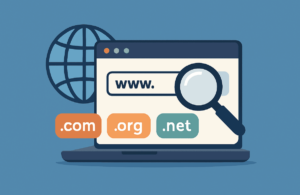
Did you know you can host many sites on one plan? Multiple websites hosting lets you save money and simplify management. Instead of buying separate
Buying a home can be thrilling and scary all at the same time. There’s plenty to think through when you want to know how to buy a home.
One of the biggest mistakes I see people make in this area is starting the process from an emotional standpoint.
Am I saying you shouldn’t have fun and feel excited? Of course not.
On the other hand, be careful not to let the emotional pull cause you to make bad financial decisions.
Emotional house buying often leads to quick decisions after seeing a house on an app, arranging drive-by viewings and then looking for fast borrowing options requiring zero to no money down.
Buying a home you can’t afford isn’t hard to do and only leads to regret over the long run.
Let’s help you understand the best way to buy a home so that you find a house you can afford to live in and enjoy for years to come.
You’re about to enter into one of your biggest life commitments when buying a home. Here are a few factors to consider.
Lenders will ask you for proof of income and work history. They’ll typically want to see that your income has been stable for at least two years before considering you as a solid choice for loan options.
This is easy to reveal if you’re a W-2 employee. If you’re self-employed, then you should start gathering tax records and other documents, such as a profit and loss worksheet.
Take stock of your debt-to-income (DTI) ratio at this time. Calculate your DTI by dividing monthly debt obligations by your monthly income. For instance, if you owe $1,500 each month for loans and credit card minimum payments and your monthly income (gross) is $5,000, then your DTI is 30% ($1,500/$5,000).
The next big question that helps you understand whether you’re ready to buy a house is how much money you have in liquid assets, or cash.
Your cash on hand helps when it comes to paying the down payment and closing cost fees.
Look at your credit report and score during this time. Your credit score plays a large role when it comes to qualifying for a mortgage and obtaining the most favorable interest rate.
Use your DTI ratio to gain an understanding about how much house you can afford.
How much money is left over each month after you subtract current debt payments, utilities, food, entertainment and any other monthly obligations?
Factor in costs that come with homeownership, such as:
It’s important to include these expenses that you’re not used to thinking about as a renter so that you’re sure about how much you can afford to pay on a mortgage payment.

When you want to know how to buy your first home, saving for a down payment and closing costs is one of the most intelligent actions to take.
Having cash available for a down payment makes you look favorable to lenders. It also reduces the amount you must borrow, which might save tens of thousands of dollars in future interest payments.
You may have heard that you need a 20% down payment when buying a home. However, this isn’t necessarily the case in all situations. There are loan options available that allow you to purchase a home with as little as a 3% down payment.
If you qualify for a USDA or VA loan, for instance, you might be able to move into a home with 0% down. FHA loans usually require at least 3.5% down.
I encourage you to do everything you can to save as large of a down payment as possible.
The bigger the down payment, the smaller your monthly payment will be. If you use a conventional loan and can put down 20%, then you can avoid paying for private mortgage insurance (PMI).
Include closing costs in your plan as you’re saving toward the down payment.
You might expect to pay somewhere between 3% and 6% on closing costs, which represent the fees involved with securing a home loan. If you’re buying a home for $300,000, then your closing costs might be somewhere between $9,000 and $18,000.
You may find a loan that wraps the closing costs up into the loan amount, reducing the amount you must pay out of pocket. The challenge with doing it this way is that you’ll pay interest on those fees over the life of a 15- or 30-year loan.
Now It’s Time To Get a Mortgage Pre-Approval
You’re ready to start house hunting after you figure out how much home you can afford and have your down payment saved!
Well, almost…
The best way to buy a home is to get pre-approved for a mortgage loan before you start looking at houses.
Your lender will give you a letter that states how much you’re pre-approved for. Show this pre-approval letter to your realtor so that everyone is clear on which homes fit your budget.
The process is relatively simple. Go to your local bank or credit union and they’ll guide you through the process. Another option is to use an online mortgage lender.
I recommend hiring a real estate agent to represent you when buying a home unless you happen to have extensive real estate buying experience.
A realtor understands the local market and can guide you through the home buying process, such as writing offers and negotiating with sellers.
Typically, there aren’t any upfront fees to hire your real estate agent. They’ll usually get paid at the time of sale through their realtor’s commission. It’s common for their commission to equal 3% of the home’s purchase amount.
Your real estate agent will get to work finding homes that match your desires, as well as your mortgage pre-approval amount. They’ll show you the homes, write up offers on the homes you want to bid on and help you through any needed negotiations.

Did you find your realtor? Great! It’s now time to start house hunting.
Giving your real estate agent clear directions is optimal when you want to know how to buy a home. Tell them exactly what type of home you’re looking for so that they can show you homes that fit your description.
Here are a few factors to consider at this time:
Think through your “best fit” priorities and rank them for your realtor.
Keep in mind that it’s not uncommon to invest a considerable amount of time looking at homes before finding the perfect fit. You won’t get discouraged if you know this going into the process.
Take your time as you go about buying a home. It’s a good idea to see multiple homes even if you find something you like immediately. Be patient and make sure that you view enough properties so that you can compare them against one another.
Once you find a property that you can’t wait to explore further, it’s now time to submit an offer to the seller.
An offer needs to be submitted in writing in order to be taken seriously by a seller. The written offer will include:
You’ll submit an earnest money deposit when making an offer on a house. The amount usually comes to 1%-2% of the purchase price that you’re offering. If you end up buying the property, then the earnest money deposit amount will go toward your closing costs and down payment.
After you and your real estate agent submit the offer, the seller has three potential ways to respond:
You can move right into the next step of the buying process if the seller accepts your offer. If they reject it, however, then you can move on to a different property or you can submit another offer to the seller.
When a seller provides a counteroffer, they might ask you to consider different terms of sale or a different purchase price. It’s your option to accept their new offer, reject it or provide them with another counteroffer for them to consider.
This is why it’s a good idea to use a real estate agent. An experienced realtor is skilled in negotiations and can help make sure you don’t get taken advantage of by sellers.
Don’t be scared to walk away from any deal even if you’ve become emotionally attached to a specific house.
However, it’s time to move into the next steps once you do come to an agreement with a seller.

Never move forward with buying a home without having it thoroughly inspected first.
Even though lenders won’t always require an inspection, the last thing you want are expensive repair surprises after you legally own the property.
A home inspector goes from section to section while inspecting the home and looks for any repair issues. They’ll look at things such as the roof, electrical system, plumbing, foundation, crawl space and appliances.
You’ll receive an inspection report that details out any repairs that the home might need.
Take your time and go through the inspection report line by line and make sure you understand exactly what everything says. This is the time to be extra careful because you’re going to be liable for anything that’s wrong with the home after you become the owner.
Here are some red flags to look for:
Talk through a plan of attack with your realtor if you see any repair problems that you want fixed before taking ownership of the house. Ask the seller to make those repairs prior to closing. Be willing to move on to a different house if you and the seller can’t agree about repairs.
Most offers include what’s called a home inspection contingency. This means you can legally walk away from the deal without losing your earnest money deposit if you and the seller can’t agree on who takes responsibility for any repair challenges.
Get a home appraisal when you’re ready to continue moving forward with buying the home.
Lenders need the appraisal before giving you the loan because this process tells everyone involved how much the house is currently worth.
A lender isn’t able to lend more than the worth of the home.
It might become difficult to obtain the mortgage if the appraisal says the house is worth less than what you offered. This another reason to use a real estate agent throughout your home buying process. A realtor can help make sure that your offer price is “on point”.
Make sure that you and your agent include an appraisal contingency within the offer.
This makes it possible to get your earnest money deposit back if you need to back out of the purchase because the home appraised too low. The contingency also makes it possible to negotiate a lower price in this situation.
It’s Time For The Final Walkthrough
Do a final walkthrough before officially buying a home.
This process lets you check for anything that doesn’t look correct. Did the seller make all the requested repairs? Did they clear everything off the property that they were supposed to?
You can move into the closing of the property after your walkthrough reveals that everything looks good.
You’ll receive a closing disclosure from the lender at your home’s closing. The disclosure summarizes all the loan’s details, as well as your closing costs.
You would have received a loan estimate after originally applying for the mortgage. Compare that estimate against the closing disclosure to make sure all the numbers match.
Next, you’ll go to the closing meeting where you’ll sign off on the settlement statement. This statement lists out the sale details. You’ll then pay your closing costs and down payment, sign the mortgage note and deed of trust, and become the official owner of your new home.
You now know how to buy a home!
Your next step is to go back up to step #1 above and start the process into motion.
Now that you know buying a home isn’t that easy but not extremely difficult. So before you plan on buying a home go with a proper planning, if you’re still confused then take help from any agent. Don’t be carried away in emotions.
Many of us make mistakes when we go to buy a house. It is not easy to handle managing fundings, mortgage loans, down payment rates, and selecting homes without knowledge.
So even if you have a tiny confusion, clear first then buy your dream house.

Did you know you can host many sites on one plan? Multiple websites hosting lets you save money and simplify management. Instead of buying separate

It’s crucial for your online store to choose the best hosting for e-commerce. A slow website drives customers away and lowers sales. Website speed affects

A domain name is your website’s online address. It helps people find you. It’s crucial to pick the right one for branding and visibility. A
Copyright 2021 Dwayne Graves Online | All Rights Reserved |